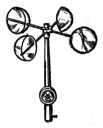Archive for the ‘PHP’ Category.
21st June 2001, 12:24 pm

I’m done with the gymnasium — I had my final exam two days ago. It was
in mathematics and I got 11. All-in-all I must say, that I’m very pleased
with the exams. My average grade is 10.5 which means that I have access to
whatever study I would like to try. But it really doesn’t matter, since
there isn’t any limits on Computer Science. Everybody that wants to give
it a try is let in, because there’s too few applicants.
But I now have two months of spare time before I’ll start at the
Department of Computer Science in Aarhus
(DAIMI). It’s just so great to be able to relax
after the last four weeks.
Now that I have all this spare time, I hope to make a release of the new
and improved PHP
Weather version 2.x. You
can try the snapshot or the latest code directly from
CVS. And if you haven’t noticed yet, then I’ve
moved the tarballs and zip-files to
SourceForge, so you should go
here if you want to
download it.
You’ll also find that the stable version of PHP
Weather has jumped to
1.55. The only new feature is support for proxyservers. So if you’ve been
needing that, be sure to upgrade. You’ll have to set three variables at
the top of phpweather.inc to enable the support.
23rd April 2001, 08:00 pm
In case you haven’t noticed, I’ve made a
CVS-release of PHP
Weather. This means that
you can try out the latest code, even if you don’t have a machine with
CVS installed.
I’ve been quite busy lately, and since my exams starts next month, I’ll
have lots of things to do… But luckily, people are beginning to join the
project at SourceForge and I hope we’ll be
able to make a nice little webpage at http://phpweather.sourceforge.net.
25th March 2001, 03:15 pm

I’ve decided to move PHP
Weather to
SourceForge. You can
find it here. This
should give us a lot of nice features. One of the best features is the
CVS
repository.
By using CVS, you can ensure that you’re always
up-to-date with the latest development — you no longer has to wait until
I release a new tarball.
I’ve set up two maillinglists:
PHPWeather-devel and
PHPWeather-checkins, which you should use instead of the old list here at
gimpster.com. The first list is for discussions and questions. When
something is committed to CVS a mail is sent to
the second list. Go to this
page to subscribe.
People who would like to have write-access to the
CVS repository should send their
SourceForge usernames to me, together with
an explanation.
I’ll update phpweather.sourceforge.net just as soon as I get the time.
18th March 2001, 03:12 pm
The newest beta of PHP Weather is out, take a
look here. It fixes
some small problems with some missing strings.
11th March 2001, 09:28 am

I’ve rewritten PHP Weather, so that it uses
objects. And it actually works, so I think we’re almost done for version
2. You can download it
here.
I sent a mail to the maillinglist,
but here it is as well:
I’ve also tried to write some documentation for the new version, which is
included in the
tarball. I used a
php-script called PHPDoc. It works by reading
comments in the code, and then build HTML-pages with that information.
It’s not finished yet, but I think we’re getting really close now. The main
advantages of this structure is:
It is easy to add support for new database-engines. Basically they just
have to support three methods: insert_metar(), update_metar() and
get_metar().
I’ve made a database-engine called ‘none‘ which doesn’t do anything, and
one called ‘mysql‘ which is fully working. I hope that someone will
write an engine for PostgreSQL, dbm etc.
The translators are able to override the output-routines, if that is
necessary. And at the same time, most languages only need to translate the
English language-file, just like old times :-)
I’ve made an English language-file. It’s probably missing some strings,
since I changed the keys in the $strings-array quite a bit while I was
coding. When a string is missing, PHP complains about an undefined index.
If you get such an error, then please
report it to this list.
I know that there’s still some problems with getting it to work under PHP3,
which should be solved. We’ll have to try and identify the cause of these
problems, and then make a fix.
So, what do you think? Is it any good? Please
report any failures and
successes you get — thanks.

